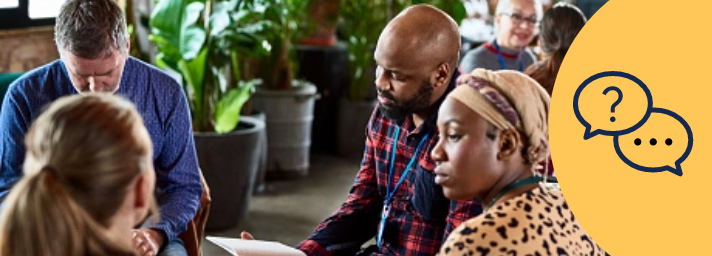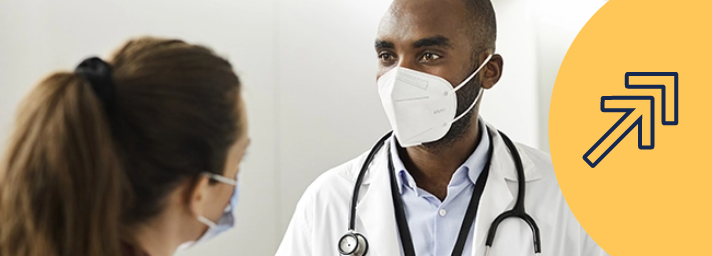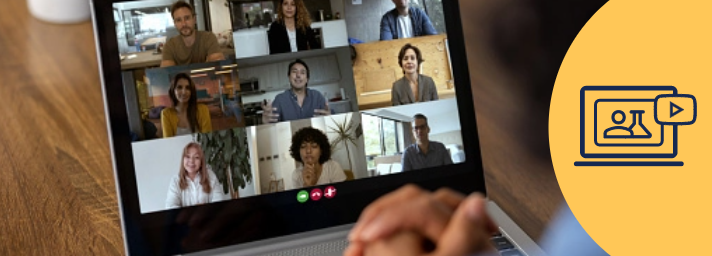Representatives
Meet the RECOVER Representatives, who are partners in and ambassadors for the Initiative’s Long COVID research.

Overview
Representatives lead RECOVER’s efforts to ensure that its studies reflect and respond to the many different lived experiences of those affected by Long COVID. Representative contributions were instrumental to RECOVER’s formation in 2021, and their continuing contributions have established RECOVER as a model for how to conduct patient- and community-centered medical research on a large scale.
Representatives include people who:
- COVID, Long COVID, or both have affected large numbers of people.
- People have lower incomes.
- People face difficulties accessing health care services.
Based on their background, Representatives join one of 3 groups, each of which has a specific focus.
- Patient Representatives explain how Long COVID affects every aspect of their health and daily lives.
- Caregiver Representatives share how supporting loved ones experiencing Long COVID affects their own well-being.
- Community Representatives ensure that RECOVER considers the voices and perspectives of those populations most impacted or burdened by Long COVID.
Representatives can belong to more than one of these 3 groups. Having membership in more than one group allows Representatives to offer broader and deeper insights into how Long COVID—from its causes and symptoms to its social and economic impact—can be different for everyone.
Play the following video to hear from more of our Representatives as they talk about the important roles they play in RECOVER.
Responsibilities
As key partners in and ambassadors for RECOVER, Representatives inform the Initiative’s research to understand, diagnose, prevent, and treat Long COVID by:
- Sharing their lived experiences, knowledge, and professional expertise.
- Creating opportunities for people to learn about and take part in studies.
- Making study findings easy to understand and use.
- Telling their communities about RECOVER’s progress.
Representatives engage in a wide range of activities to achieve these impacts. These activities include:
- Collaborating with researchers to design RECOVER’s observational studies and clinical trials.
- Co-creating symptom surveys, recruitment flyers, and other study materials.
- Co-authoring publications.
- Explaining study findings during R3 seminars, in Discover RECOVER videos, and at conferences.
- Serving on committees and task forces.
- Supporting each other through training, mentoring, and the development of processes and procedures.
Representatives are compensated for their time and their participation is renewed each year.
“I’ve seen the immediate impact that my voice, opinions, and experience have had... this is probably one of the rare times I’ve seen regular people’s thoughts, opinions, and experiences be applied and used for the good of their community and so quickly.”
Teresa from Georgia
Patient and Community Representative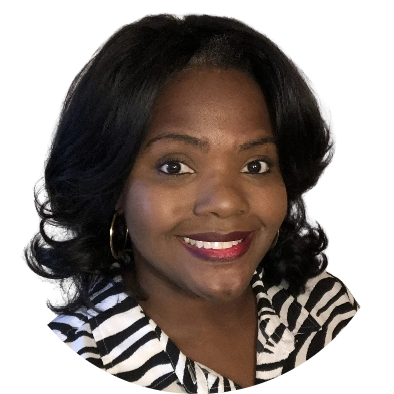
Leadership
The National Community Engagement Group (NCEG) provides leadership for RECOVER’s more than 100 Representatives. More than 2 in 3 of the NCEG’s members identify as patients with Long COVID.
The NCEG promotes meaningful discussion, genuine partnership, and shared decision-making by:
- Consulting on research, communication activities, community engagement, and more through the activities of 3 subcommittees: the Communications Subcommittee, the Publications Subcommittee, and the Representative Engagement Subcommittee.
- Ensuring that people with different backgrounds have the same opportunities to participate in RECOVER studies.
- Promoting the importance of lived experiences by centering the voices of patients, caregivers, and community members.

NCEG Co-Chairs
Five co-chairs lead the NCEG. NCEG co-chairs may serve up to 2 one-year terms. Several NCEG co-chairs serve on coordinating committees that provide leadership for RECOVER as a whole. Specifically, of the 5 NCEG co-chairs:
- One is also a member of the Observational Consortium Steering Committee (OCSC).
- One is also a member of the Clinical Trials Steering Committee.
Active Co-Chairs
Co-chair members are listed with permission.
Frank Blanceró is a Community Representative for the NIH RECOVER Initiative. His work centers on the crisis of Long COVID, infection prevention and control, implementation science, public health messaging, community engagement, and resources distribution.
Frank’s work at the intersection of public health and emergency management began at the outset of the COVID-19 pandemic while he was working in disaster preparedness and emergency response in New York City. During this time, he helped assemble and lead multi-sector coalitions that coordinated the dissemination of critical public health information and the distribution of essential resources during overlapping public health emergencies.
Frank currently leads campaigns and initiatives designed to address gaps in public health infrastructure, strengthen community-driven awareness and responses, and translate scientific evidence into actionable guidance. His work prioritizes centering evidence-based research, patient, caregiver, and community member lived experience, improving public awareness about COVID and Long COVID, and supporting effective public health implementation and systems improvement.
Etienne A. Carignan is a COVID-19 survivor and has served as a Patient Representative with the RECOVER Initiative since 2023. His professional background includes military service, 13 years as communication technician, and 10 years as Sales Manager for multiple major car manufacturers. His education includes a culinary degree as well as degrees and certifications in electrical sciences, network security, and project management. His past and current leadership roles have allowed him to develop an eye for detail, the ability to identify a problem, and the skills needed to work out viable solutions. In addition to serving as an NCEG Co-Chair, Etienne has also co-authored several RECOVER publications.
Leah Castro has been a Community and Caregiver Representative with RECOVER since May 2022. Her professional background includes 20 years’ experience as a music and entertainment journalist/producer, 3 years’ experience as a realtor, and nearly 5 years’ experience contracting in the Community Engagement space. Working in these different roles has allowed her to develop a keen eye for detail, exceptional problem-solving abilities, and a commitment to excellence that seamlessly translates into multiple sectors.
Leah currently participates in several leadership groups within the RECOVER Initiative. In addition to serving as NCEG Co-Chair, she is Co-Lead of the NCEG Publications Subcommittee. In August 2022, she co-developed the standard operating procedure (SOP) the Publications Subcommittee follows to include Representatives in the authorship process for RECOVER publications. Leah also serves one of the Representatives on the Observational Consortium Steering Committee (OCSC).
Marta Cerda is a Co-Chair of the NCEG and served on the RECOVER Clinical Trials Steering Committee and the RECOVER-VITAL Platform Protocol Writing Team. Marta has more than 38 years’ experience in corporate, not-for-profit, philanthropic, and political arenas. She is currently CEO of ASI, a not-for-profit organization that provides home health, telehealth, home care services, employment, and training programs.
Marta is a dynamic leader who takes a transformative approach to leadership, using her experience and global vision to analyze trends and forecast where the healthcare industry is headed. She has transformed ASI from a fee-for-service model to a population health model.
During the COVID-19 pandemic, Marta led ASI’s vaccine outreach initiatives. Her efforts led to ASI receiving a grant from the Health Resources & Services Administration (HRSA) to conduct COVID-19 vaccination and outreach in 5 Latino and African American communities in Chicago where people face difficulties accessing healthcare services. ASI also created a team of 13 Community Health Workers who reached most of Chicago with resources and vaccinations. In September 2024, she co-organized a Long COVID Summit in partnership with ILLInet RECOVER, UI (University of Illinois) Health, and several other community-based organizations.
Marta earned her Bachelor of Arts degree from Smith College and a Juris Doctor degree from Loyola University’s Chicago School of Law. She is a candidate for the Northwestern-Kellogg School Executive Scholar Program. As a National Hispana Leadership Institute Fellow, she has attended the Center for Creative Leadership and the John F. Kennedy School of Government at Harvard University. Marta completed How Women Lead’s global fellowship, Women Leaders for the World 2024. She was named a Notable Woman in Healthcare in Crain’s Chicago.
RECOVER Community Representative Jacqui Lindsay is Founder and President of Innovation by Design, a consulting firm that that specializes in strategy, innovation, and leadership development for organizations committed to social and systems change. She also leads the Boston COVID Recovery Cohort (BCRC), a coalition of 6 Massachusetts hospitals supported by RECOVER to conduct research on COVID-19 and the communities most impacted by the disease and its long-term effects. Jacqui is committed to the development of a world that’s enriched by what diverse groups of people produce when they are supported to think and learn together, discover common ground, and work together to create the future they want.
NCEG Members
NCEG members are listed with permission. This roster is not a comprehensive list of NCEG membership, as some participants prefer to contribute to the NCEG without being listed publicly and we honor their preference.
Frank Blanceró - Co-Chair
Etienne Carignan - Co-Chair
Leah Castro - Co-Chair
Marta Cerda - Co-Chair
Jacqui Lindsay - Co-Chair
Megan Carmilani
Alison Cohen
Laura Covington
Lia Evans
Liza Fisher
Yvonka Hall
Billy Hanlon
Nita Jain
Jeannie Karwowski
Juan Lewis
Kian Nguyen
Elizabeth Phillips Lorenzo
Sandria Savage
Ann Wallace
Mike Zissis
How to Join
The process of becoming a Representative has 3 steps.
- Be nominated by someone else or submit your own application.
- Complete a brief survey online or over the phone.The survey includes questions about your:
- Background: Age, sex, race/ethnicity, and where you live.
- Experience with:
- COVID and Long COVID.
- Medical or social research.
- Community-engaged work (personal or professional).
- Reasons for wanting to become a Representative.
- Availability to attend meetings.
- Engagement in other RECOVER activities.
- The RECOVER Administrative Coordinating Center (ACC) reviews the survey responses and selects people to serve as Representatives.
If you are not selected to become a RECOVER Representative, you can still stay involved in RECOVER through webinars, roundtables, and other activities. Because Representatives serve for up to 2 years and nominations open regularly, you will have other chances to apply. Staying active builds experience and strengthens your next application.
Learn more or express your interest about becoming a Representative by emailing RECOVER_REPS@rti.org.
Accomplishments
The NCEG compiles a list of the specific contributions Representatives have made to RECOVER in the previous year. These lists contain updates and details about:
- Representatives’ ongoing activities
- Expansions to Representative roles and responsibilities
- New initiatives launched, especially initiatives involving innovative approaches to research, communication, or community engagement
- Milestones reached
- Impact achieved
Expand the sections below to view these annual lists of Representative accomplishments.
- Consulted on RECOVER clinical trials: Representatives reviewed and provided feedback on protocols, materials, and recruitment documents for studies testing the safety and effectiveness of treatments for Long COVID symptoms. Representatives also shared recommendations on how to support trial participants and keep them engaged.
- Participated in RECOVER-TLC kickoff meeting: Representatives shared their knowledge, perspectives, and experiences at this 3-day event to plan the next phase of RECOVER clinical trials: RECOVER–Treating Long COVID (RECOVER-TLC).
- Reviewed pathobiology study proposals: Representatives evaluated applications for funding submitted for RECOVER PASC Pathobiology Substudies (Research Opportunity Announcement [ROA] OTA-21-015J).
- Launched Discover RECOVER video series: Representatives created the concept for and appeared on camera in these short videos summarizing important RECOVER research findings.
- Co-authored 17 RECOVER publications: Representatives also collaborated with researchers on an additional 45 manuscripts, or publications in progress.
- Presented at scientific conferences: Representatives shared RECOVER research findings by participating in presentations at events including the University of California at Los Angeles (UCLA) Long COVID in Pediatrics conference, Pediatric Academic Societies (PAS) meetings, and the annual meeting of the American Public Health Association (APHA).
- Held listening sessions: Representatives developed and initiated a plan for Community Engagement Listening Sessions.
- Increased number of Representatives: The NCEG onboarded 38 new RECOVER Representatives. Representatives also elected and onboarded new NCEG members and Co-Chairs.
- Created the Representative directory: The NCEG expanded the Representative network by creating a directory, making it easier for Representatives to connect with one another.
- Enhanced Peer Exchange participation: The NCEG Engagement Subcommittee transitioned Peer Exchange to a paid activity, resulting in a growth of participants from approximately 10 to 30.
- Extended recruitment enrollment period: Representatives from Hispanic and rural communities helped RECOVER researchers recruit more study participants from their communities.
- Revised legal next-of-kin surveys: Representatives provided caregiver and disability perspectives to improve the form for the families of people enrolled in RECOVER autopsy studies.
- Co-authored RECOVER research publications: Representatives partnered with RECOVER researchers to share study findings reflective of their communities.
- Made RECOVER research more accessible: The NCEG Communications Subcommittee reviewed RECOVER plain language research summaries and other dissemination materials.
- Presented at RECOVER Research Review (R3) Seminars: Multiple Representatives spoke as panelists at R3 seminars.
- Developed authorship training: The NCEG Publications Subcommittee developed authorship training for Representatives and researchers.
- Created Representative newsletter: The NCEG Representative Engagement Subcommittee collaborated with RECOVER leaders to make communications with Representatives more transparent.
- Met with National Institutes of Health (NIH) leaders: NCEG Co-Chairs worked with NIH to guide community engagement restructuring.
- Formed NCEG Subcommittees: Representatives joined NCEG Publications, Representative Engagement, and Communications Subcommittees.
- Advocated for additional seats: NCEG Co-Chairs successfully petitioned for additional Representative seats on the RECOVER Cores Operations Group (COG) and Steering Committee.
- Extended inclusion criteria: Representatives supported changing inclusion criteria to extend the period from a prior positive COVID test to 36 months.
- Developed community-specific study materials: Representatives joined focus groups to create recruitment materials tailored to American Indian/Alaska Native, Black, and Hispanic communities.
- Created participant feedback questionnaire: Representatives helped create a questionnaire to collect feedback from participants about their experiences with the RECOVER studies.
- Provided feedback on adult study: Representatives provided feedback on the adult protocol symptom questionnaire and Manual of Operations and Procedures (MOP).
- Modified adult comorbidities case report form: The RECOVER COG approved Representative recommendations to modify this form.
- Reviewed clinical trials ROAs: Representatives reviewed and provided feedback on how RECOVER engages researchers interested in studying potential treatments for Long COVID. Representatives also joined the protocol working groups and provided input on the design of RECOVER clinical trials.
- Participated in Integrative Physiology Task Force: Representatives provided input on tests to measure how Long COVID affects a range of body functions.
- Drafted Representative authorship guidelines: Co-developed a process for Representatives working on RECOVER manuscripts.
- Created Learning Hubs: Created Learning Hub forums to meet Representatives’ needs and engage with study sites.
- Produced Representative journey video: Representatives helped create a video showing how they impact RECOVER.
- Updated payment process: Representatives voted on different payment options and chose how often to be paid.
- Evaluated community engagement structure: Representatives revised roles, responsibilities, and engagement trainings.
- Held first NCEG meeting: More than 15 Representatives attended.
- Joined Steering and Executive Committees: Representatives gained seats on the Steering and Executive committees.
- Presented on Representative engagement: The Community Engagement team presented strategies and accomplishments to the U.S. Department of Health and Human Services (DHHS).
- Collaborated with White House Long COVID Council: The Council presented at the NCEG meeting at the Representatives’ request.
- Informed study plans: Representatives attended meetings to help create study plans.
- Set rule that positive COVID tests are not needed to participate in studies: Participants who had COVID no longer need to present a positive COVID test result to join observational studies.
- Included participants who had COVID at any time in the past: Representatives updated inclusion criteria so people who had COVID at the start of the pandemic (including more than 12 months ago) can join studies.
- Reviewed recruitment materials: Representatives reviewed and gave input on materials to recruit study participants.
- Developed symptom survey: Representatives completed the first draft of a participant symptom survey taken from the Body Politic (patient group) survey. Representatives later revised this draft and reorganized the survey to ask about Long COVID physical symptoms first, then mental health symptoms.
- Contributed to participant survey: Representatives added the question “Do you think you have Long COVID?” and questions specific to myalgic encephalomyelitis/chronic fatigue syndrome (ME/CFS).
- Revised Standard Operating Plan (SOP) and Case Report Form (CRF): Representatives changed the SOP to return clinical results to participants. Representatives changed the CRF to give people with ME/CFS accommodations to complete it.
- Finalized committee assignments: Representatives received their preferred committee assignments.
“I’ve used my role within the patient experience to enlighten the doctors on some of the things I experienced at my particular site. Those experiences were then shaped into directives that were then distributed to several of the sites and were immediately implemented.”
Belinda from Maryland
Patient and Caregiver Representative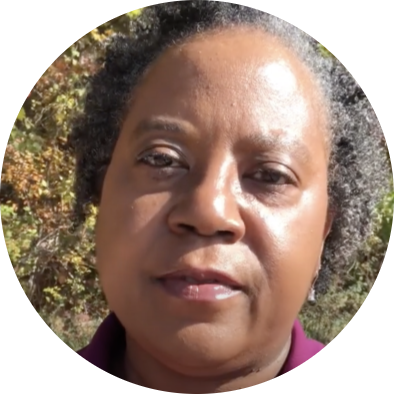
Resources
Explore other RECOVER resources:

List(PDF, 12 pages)
View the list of RECOVER experts on ME/CFS, postural orthostatic tachycardia syndrome (POTS), and other post-infection conditions.
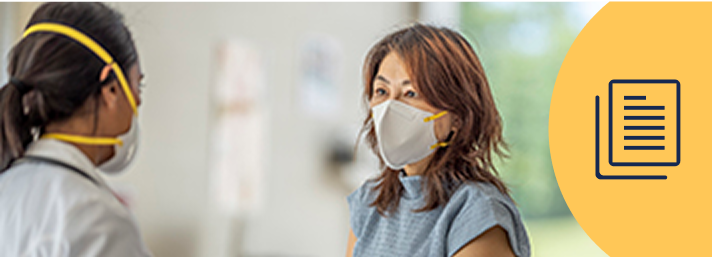
Connect with organizations and healthcare providers who provide services for people experiencing the long-term effects of infectious diseases, including COVID and Long COVID.
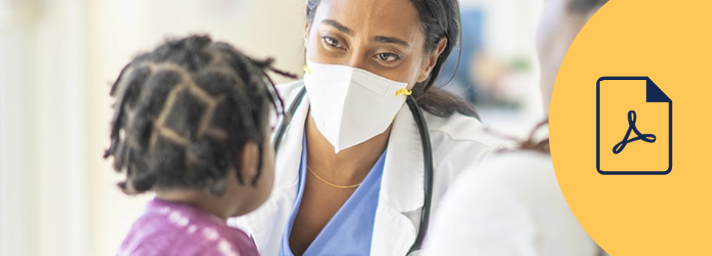
Learn how to get care for a child experiencing symptoms of Long COVID.

Learn about the progress RECOVER has made toward developing a working definition of Long COVID in adults.
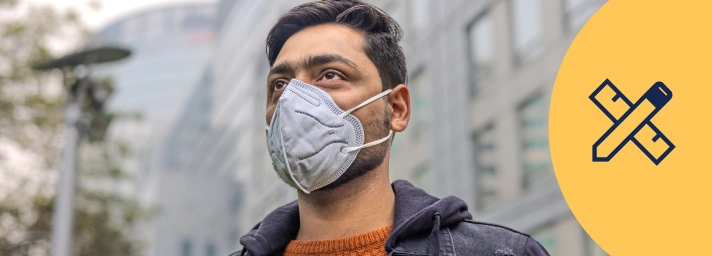
Explore guides, recommendations, and resources for sharing RECOVER’s discoveries with those most impacted by Long COVID.
Learn more about RECOVER’s research findings and methods:
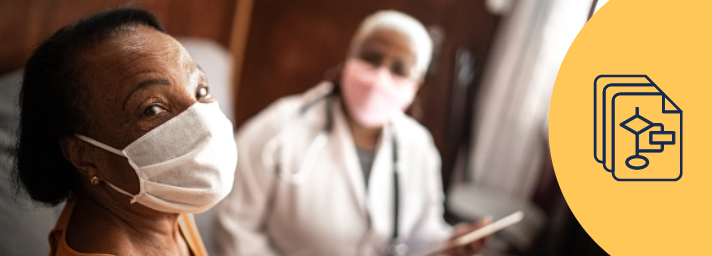
Read RECOVER’s study plans on observational cohort studies for adults, children, and pregnant women.
